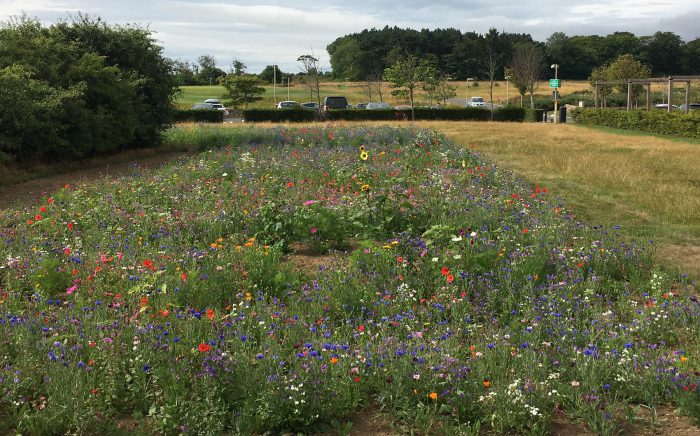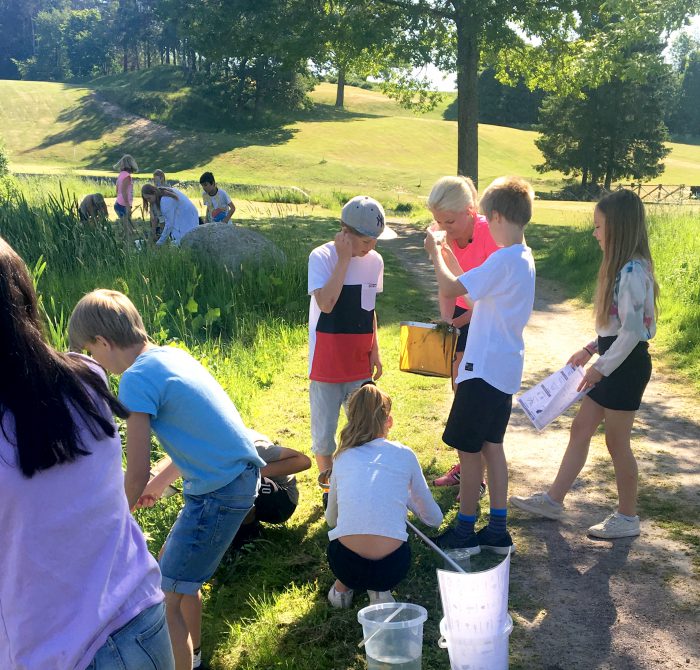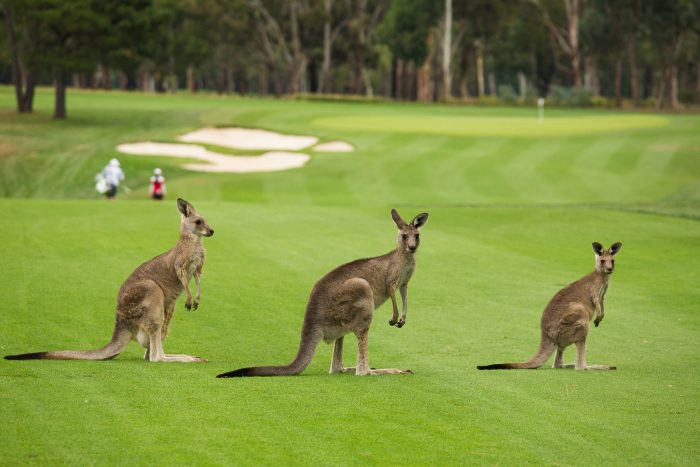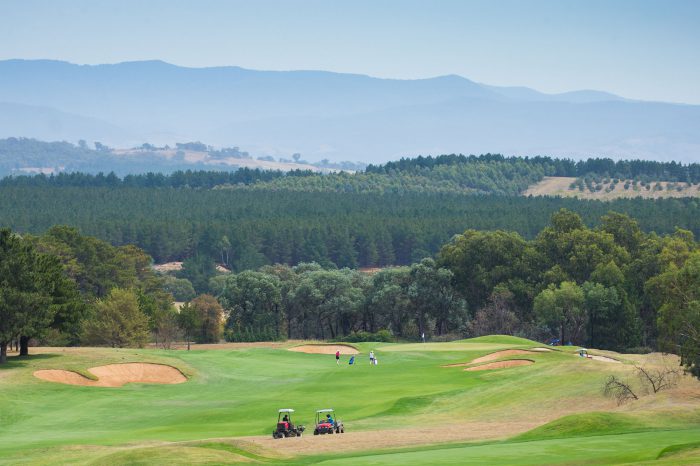Making your golf course more attractive to bees
Some golf course attempts to make their facilities more attractive to bees have been so successful that they’re being studied at a college.
Keen to make their venues more attractive to bees, golf clubs in Scotland have been earning praise for their environmental credentials.
The St Andrews Links Trust, for example, has been planting buffer zones of wild flowers to attract pollinating insects and has adopted seven beehives.
Trevor Harris, deputy course manager at the Castle Course, said: “What we are doing at St Andrews Links is to make it more diverse for wildlife. As well as the beehives, we are thinking about the introduction of bird boxes and insect hotels to make sure we have got the right habitat to encourage wildlife.

The ‘bee lawn’ wildflower plot, the size of a football pitch, at Fairmont St Andrews
“Creating an oasis for wildlife is something that is very important for any modern-day golf course.”
Head gardener at Fairmont St Andrews, John Mitchell, has worked with greenkeeping staff to plant a ‘bee lawn’ the size of a football pitch in front of the hotel to attract more pollinators to the area. He has also undertaken a beekeeping course, with general manager John Keating, and is now looking after two hives on site.
“The lawn was planted in time for the bee hives coming last July,” he said. “It helps make people more aware of what we’re doing here because it’s very visual.
“It’s very handy for us having the golf course close by as there is a lot of gorse which the bees love, and hopefully by the end of this year we will have our own honey.”
The projects have been so successful that HNC golf course management students at Scotland’s Rural College (SRUC) have visited them while learning the importance of considering both birds and bees in their golf course designs.
The students, such as Tod Bannerman, then each designed a golf course, His one includes areas of natural grassland and a wetland area.

“On my design, each hole becomes ‘individual’ with large areas of natural grassland vegetation left to grow in between holes throughout the year, encouraging more wildlife to the site and providing a habitat and food source for the wildlife and insects,” he said.
“I have also included a wetland / pond area on my design because they play a significant part in biodiversity. Ponds provide drinking water during dry weather, a supply of insect and plant-based food, and shelter among surrounding plants and trees.”

Students from Scotland’s Rural College visiting a wildlife habitat at a nearby golf course.
Lecturer Ian Butcher said: “Golf is in a process of evolution, not least in working with nature rather than against it.
“And this opens doors to specialisms for our students to consider, all the while learning knowledge and skills that are applicable across a range of landscape management scenarios.”
Meanwhile, the Ladies European Tour (LET), with help from GEO Foundation, has developed a sustainability plan that aims to set out a new and strengthened commitment to social and environmental responsibility.
The plan includes a number of new policies spanning the reach and influence of the LET, including:
- Encouragement for all venues to be actively engaged in credible sustainability programmes and ideally accredited to international standards
- Guidance made available to staging and promoting teams, to help extend the integration of best practices across key operations, including waste, energy, transportation, catering and water
- Joint development of new outreach and legacy opportunities around events, to support local communities and their environments
- Guidance and support for communications and spectator engagement.
The LET visits over 30 venues each year and is aware that many of them are already engaged with the issues of sustainability and are taking great care when maintaining their courses. Similarly, the event promoters are aware of their responsibilities and have environmentally-friendly procedures and practices in place.
However, much of this work is going unnoticed, and the ‘LET’s Go Green’ strategy will also provide a platform for all those involved to profile credible work they are doing to address a variety of important sustainability issues.

One of the courses on the Ladies’ European Tour, which has developed a plan to promote the environmental best practice of all its host venues
Jonathan Smith, executive director of GEO Foundation, commented: “This is welcome leadership from the LET at a time when most businesses are recognising the need to deliver even clearer social and environmental purpose and results. We are excited about continuing to support implementation, engagement with any venues or tournaments that would like support and recognition, and to helping to champion the outcomes.”

Royal Canberra Golf Club. A view across the back 15th hole. Credit: Tristan Jones
Looking forward, the LET’s development director, Mike Round, said: “This sustainability plan matches well with our other core principles, and as such should prove to be a good fit and an important area of extending the value the LET offers to all partners, sponsors and stakeholders. We will now be contacting the venues and promoters to inform them of the ‘LET’s Go Green’ plan, encouraging them to get involved and working with them to identify and promote their stories and examples of good practice. We hope that, over time, celebrating sustainability work will become a standard feature at all of our tournaments and with all of our partners.”















Let me tell You a sad story ! There are no comments yet, but You can be first one to comment this article.
Write a comment